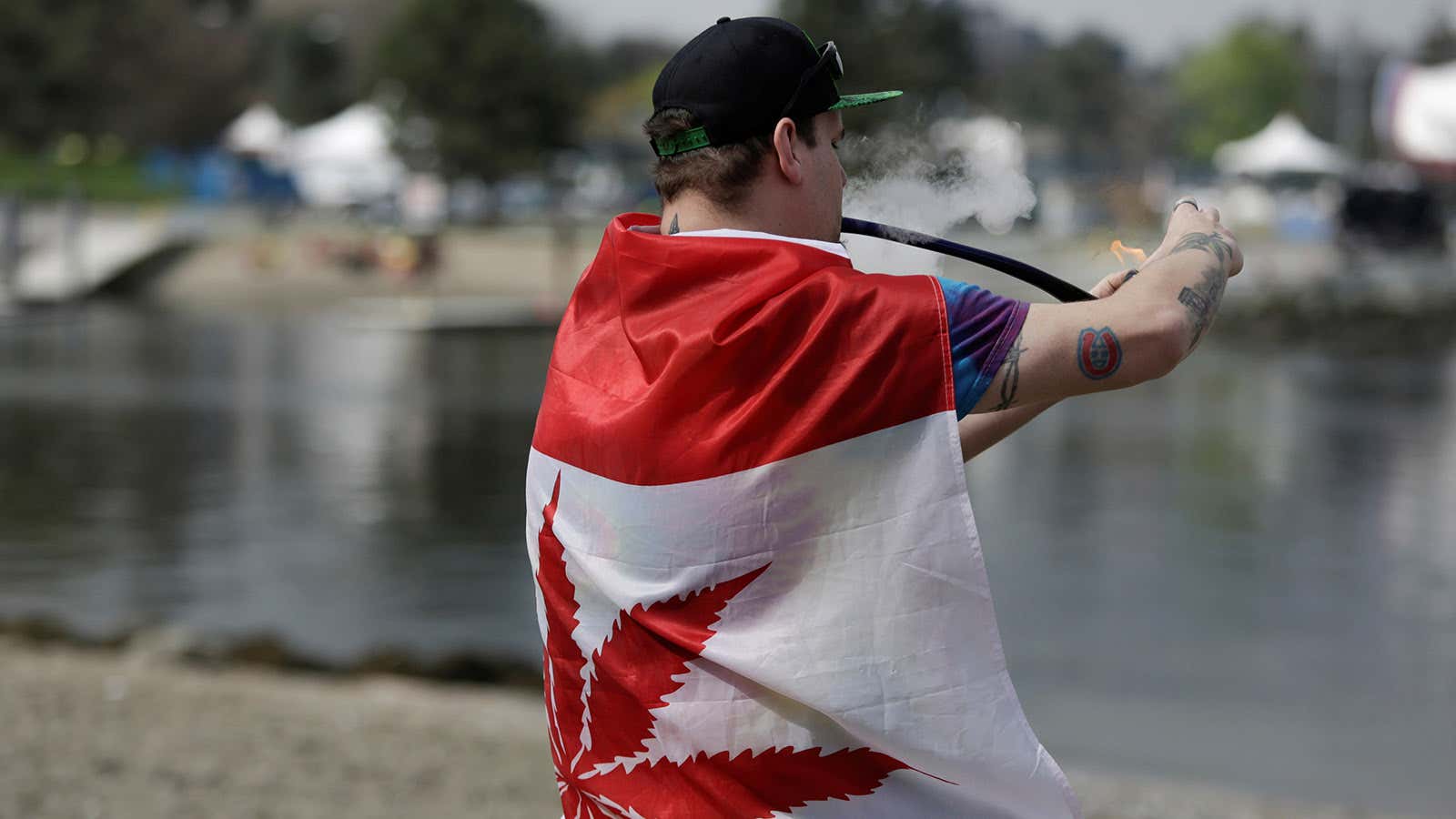Canada has a marijuana problem: The country is running out of legal weed for both medical and—soon—recreational users. The government is planning to make recreational marijuana legal no later than July of 2018, but politicians and some analysts are worried about adequate supply.
Cam Mingay, a senior partner at Cassels Brock, believes that, even if a flurry of companies were approved to start growing immediately, it would take until the end of 2018 for them to be in production “in any meaningful capacity.”
“Ultimately the biggest problem that appears after today’s discussion is one of supply, so we want to make certain that, when we do proceed, there is sufficient supply to accommodate the activity because what we’re trying to do is curb the illicit use and organized crime that now exists around it,” Ontario finance minister Charles Sousa said during a meeting last week with provincial and federal finance ministers, according to Bloomberg.
Pot shortages have been a concern for Canadian medicinal users for a while, and have prompted Health Canada to streamline its approval process for growers. The number of registered medical marijuana users has tripled since last year, to 167,754.
Companies are also working to rapidly scale up to meet consumer needs, with grower Organigram raising its capacity from 6,000 kg annually to 26,000 kg annually by 2018. CEO Greg Engel says companies are still unsure what can be sold and are waiting on clarification from officials.
Even if the government gets its act together and and a new crop of growers spring up, it may not be enough to stop the price of legal weed from rapidly increasing. That’s not necessarily a disaster, argues Marginal Revolution‘s Alex Tabarrok:
Much of the new demand will come from people who were deterred from buying illegally. As far as these buyers are concerned, the total price–including the price of possibly being caught–will have fallen, even as the money price rises. Many people who were buying illegally will also prefer to buy legally, even at the higher price. In other words, even if the price of legal pot is higher than the current illegal price, the demand for illegal pot will fall, putting pressure on the criminal element.”
Recreational marijuana could put quite a dent in the illegal market but it’s unlikely to make much of an impact on alcohol sales. An analysis from the Anderson Economic Group shows that legal weed will take $160 million (less than 1%) out of Canada’s $22.1 billion alcohol market.
